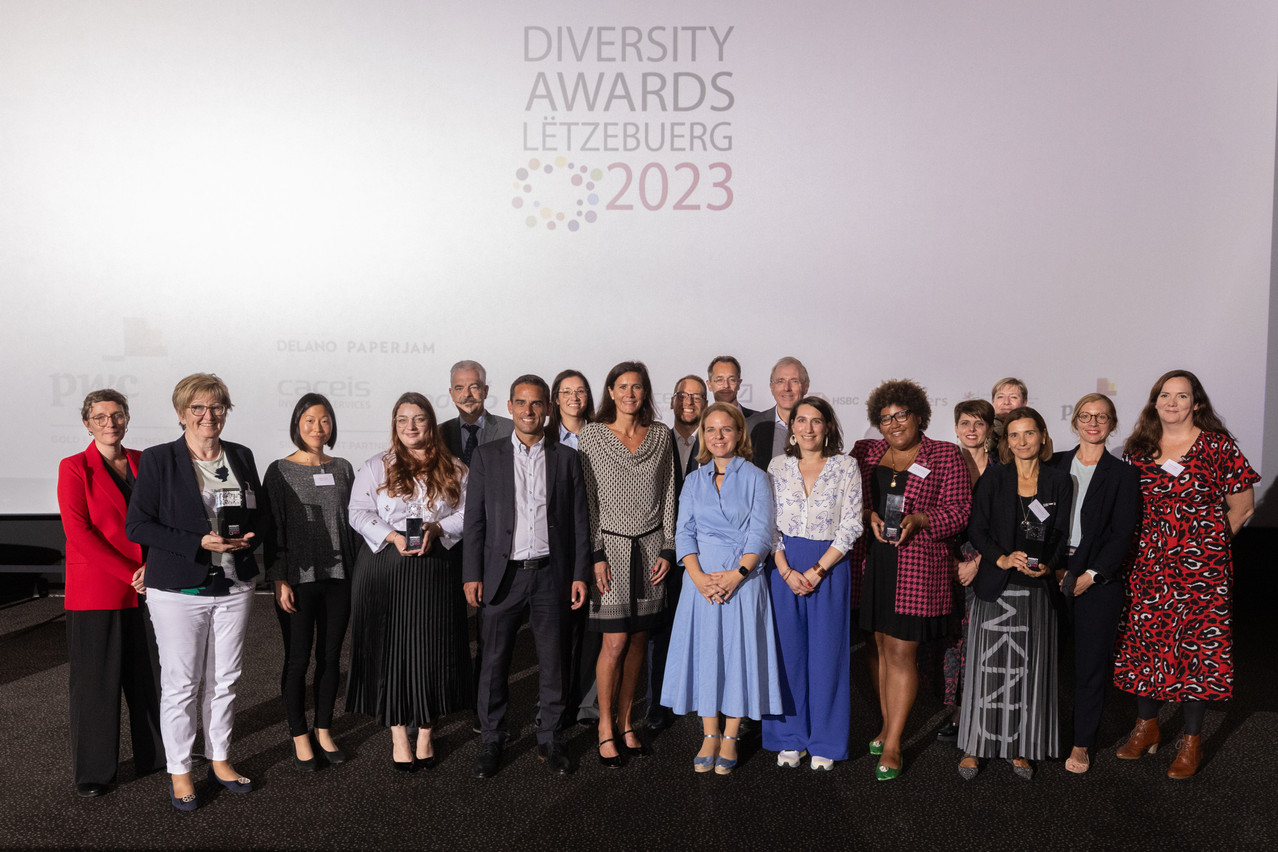The winners were weeded out of a field of 24 candidates and presented at the 5th edition of the IMS Diversity Awards. The non-profit organisation first ran the awards in 2015. The aim, according to its website, is “to highlight and reward best practices in diversity management and equal opportunities.”
And the winners are…
For “Recruitment, induction and integration”: Ferrero
The Italian chocolate company, headquartered in Luxembourg, won the award for its compulsory training course on inclusion and respect, which it has delivered to all of its 1,400 employees. Started in 2022, when it was given to the whole team in the grand duchy, the course is now part of the induction programme for new joiners.
“The training lasts one day and is preceded by an e-learning session as preliminary work,” explains Valeria Mantovanini, Ferrero’s talent and diversity manager. “The aim is to understand what is meant by diversity, integration and inclusion. And to raise awareness of unconscious biases and familiarise ourselves with local regulations on subjects such as harassment and discrimination.” The course is built around scenarios meant to stimulate discussion among participants.
The other nominees in this category were Asti, whose “Coach4Work” programme supports jobseekers with volunteers; and the CFL, whose “Women in CFL” project seeks to promote the recruitment and integration of women into the rail industry.
For “Career management”: the municipality of Sanem
“A colleague pointed out to us that there were no babysitters to look after children with special needs,” says Annick Spellini, the person in charge of equal opportunities and diversity at Sanem city hall. Hence, the “inclusive training for babysitters” project, launched in 2017 and which teaches students how to babysit children with special needs.
The municipality, which employs 858 people, has actually been offering babysitting training courses since 2006 and--explains department head Nathalie Morgenthaler--particularly to young boys, in order to challenge gender stereotypes. The special needs element presented another step towards inclusion.
Also nominated in this category were Amazon for its “Women Leadership Programme,” which seeks to support women and non-binary leaders; and Youth & Work for its “Future Generation” plan, which seeks to redefine recruitment via introducing a process whereby companies invite young people with no professional experience to solve a concrete problem.
For “Environment and wellbeing at work”: Nhood
On Tuesdays from 4:00-5:00pm and Thursdays from 3:00-4:00pm, the Cloche d’Or shopping centre turns down the lights and mutes the sound. In the Kirchberg shopping centre, this happens on Tuesdays from 9:00-11:00am and Thursdays from 2:00-4:00pm. These are the “silent hours,” a concept introduced by Nhood, together with Autism Foundation as well as the property developer and manager in charge of these shopping centres. The aim? “To provide a peaceful environment for people with autistic spectrum disorders and hypersensitivity,” says Éric Mathieu, Nhood’s director of promotion and development.
Also nominated in this category were Émile Mayrisch Hospital (CHEM) for its “support for vulnerable employees” (i.e. those with long-term illnesses or physical/psychological difficulties) via an occupational psychologist; and Michael Page for its “Diversity@work” project, which seeks to promote diversity both internally and among its customers.
For “Communication, organisational values”: Société Générale
Société Générale has set up a “diversity and inclusion bingo” game for its 1,200 employees in Luxembourg. “As a change from the more institutional approaches to raising awareness--which already exist within the group--together with the Diversity and Inclusion Committee we decided to create a more fun and participative activity,” says communications manager Laëtitia Sassi Tchokokonté. “We thought there was nothing better than our grandparents’ game: bingo.” Fifteen participants (with three moderators) play the game at at time, over two hours and in three rounds. Managers can organise the bingo sessions within their teams; it is meant to highlight the actions that the group has taken regarding diversity and inclusion.
The other nominees in this category were the Post for its internal “#Respekt” campaign, which seeks to raise awareness among its employees and prevent harassment, discrimination and microaggressions; and Research Luxembourg, whose “Women and Girls in Science” videos aim to promote women in science and inspire future generations.
The jury
The shortlist of nominees for each category were selected by 17 experts, after which a jury of seven decided on the four winners. No financial prize is offered. Rather, they win “the opportunity to communicate the fact that they are innovative in terms of diversity.”
The jury was made up of David Baker, senior expert in development, diversity and inclusion policies at the European Commission; (DP), alderperson of the City of Luxembourg and patron of the Diversity Charter; Catia Fernandes, member of the board of the Centre for Equal Treatment; , director of the Oeuvre nationale de secours Grande-Duchesse Charlotte; Philippe Renard, CEO of Caceis Investor Services Bank; Noémie Sadler, vice president of the Commission consultative des droits de l’Homme; and , president of IMS Luxembourg.
The IMS on this fifth edition of the awards: “On the one hand, we have companies with ‘mainstream,’ less innovative practices, which have slightly less chance of winning an award. “But this allows us to see that these initiatives are becoming commonplace in organisations, and so much the better, because it means that they are reproducing practices and trying to go further. On the other hand, we have entries with new ideas.”
This article in Paperjam. It has been translated and edited for Delano.
